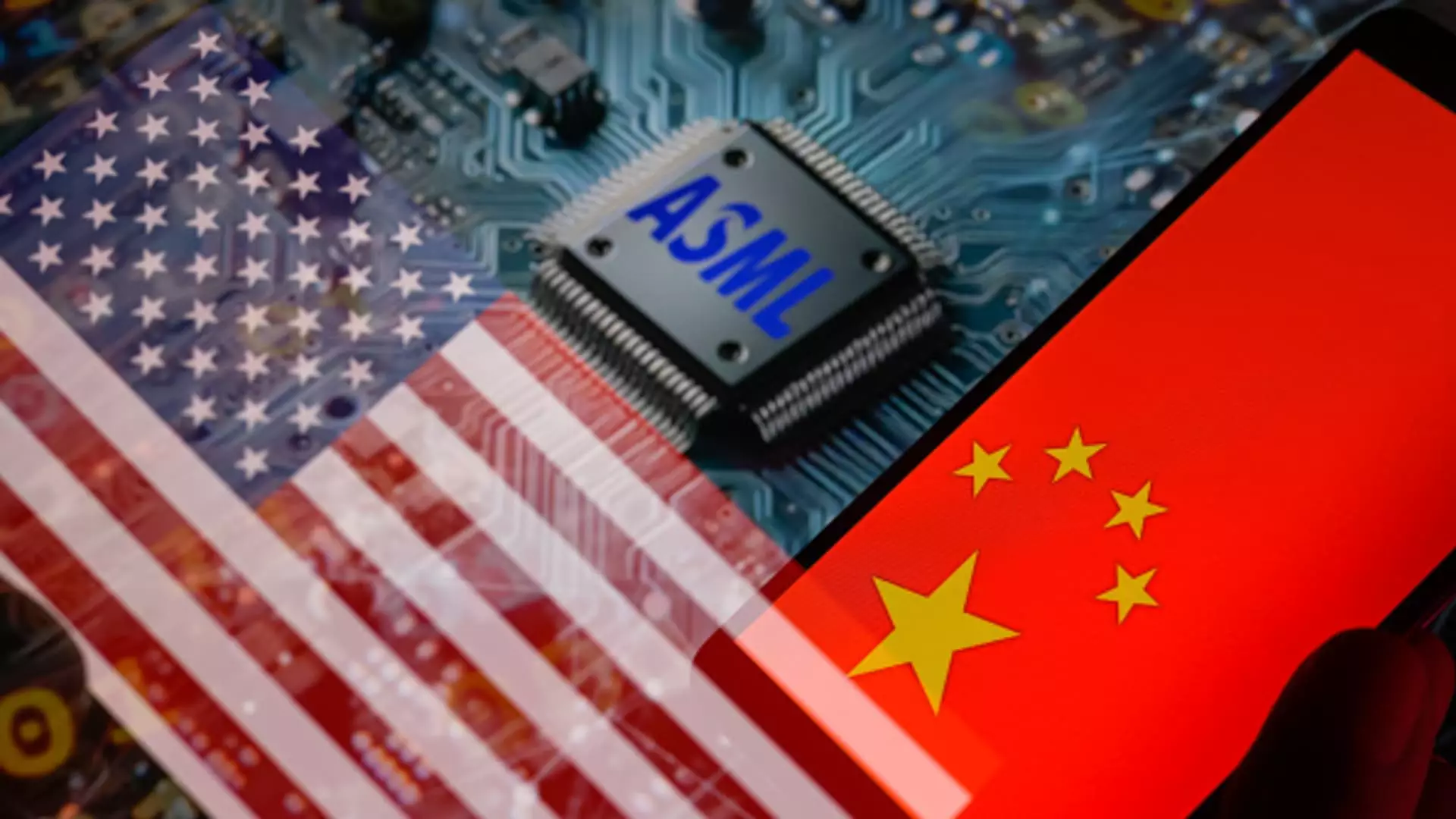The stock market for semiconductor equipment companies experienced a notable uptick following reports of potential U.S. sanctions targeting China’s chip sector. Investors appeared optimistic, as seen in the early trading figures, with companies like ASML and Tokyo Electron witnessing gains of approximately 3.6% and over 6%, respectively. This response underlines the sensitivity of the semiconductor market to geopolitical tensions and regulatory changes, showcasing how interconnected global economies can influence individual company performances.
Recent news from Bloomberg indicated that the U.S. government is contemplating new restrictions aimed at curtailing the export of semiconductor technology to China. However, these measures might be less severe than the initial proposals anticipated, suggesting a potential easing of the intended crackdown on China’s rapidly growing semiconductor industry. By reconsidering the extent of these sanctions, the U.S. may be inadvertently providing more breathing room for certain players within the industry, ensuring that firms like ASML can maintain some level of operational stability in the Chinese market.
One remarkable aspect of the proposed regulations is the decision to possibly exclude companies like ChangXin Memory Technologies from the export blacklist. This particular move could limit the adverse impact of sanctions, allowing ASML’s revenue from the Chinese market to remain resilient, contrary to earlier forecasts of a drastic 30% decline. The decision demonstrates a nuanced approach and emphasizes the complex relationship between the U.S. and China within global technology supply chains.
ASML occupies a pivotal position in the semiconductor manufacturing ecosystem, particularly in producing lithography machines essential for the creation of cutting-edge chips. These machines are indispensable for companies like Taiwan’s TSMC and China’s SMIC for producing advanced semiconductors. As restrictions tighten, ASML’s ability to navigate these regulations will be critical for its ongoing success, especially in balancing compliance with market demands.
The U.S. sanctions are not just a matter of national security; they reflect ongoing technological rivalries that could shape the future of global semiconductor manufacturing. ASML’s machines have faced significant restrictions, limiting their deployment to Chinese manufacturers and impacting overall market dynamics.
The current market reaction also highlights a broader theme: the investor sentiment in the semiconductor space is highly reactive to regulatory news. The gains achieved by key firms following the sanction discussions suggest that investors are optimistic that the impacts of these regulations may not be as harmful as previously anticipated. While there is a cloud of uncertainty surrounding the exact outcomes of the proposed export limits, the overall market seems to be banking on the possibility that the sanctions could be less comprehensive than expected.
As stakeholders continue to monitor regulatory developments, it’s essential to recognize that the semiconductor industry remains at the heart of technological advancement and economic growth. The interplay of global policies, market reactions, and corporate strategies will be crucial in shaping the landscape of semiconductor manufacturing in the coming years.


Leave a Reply
You must be logged in to post a comment.